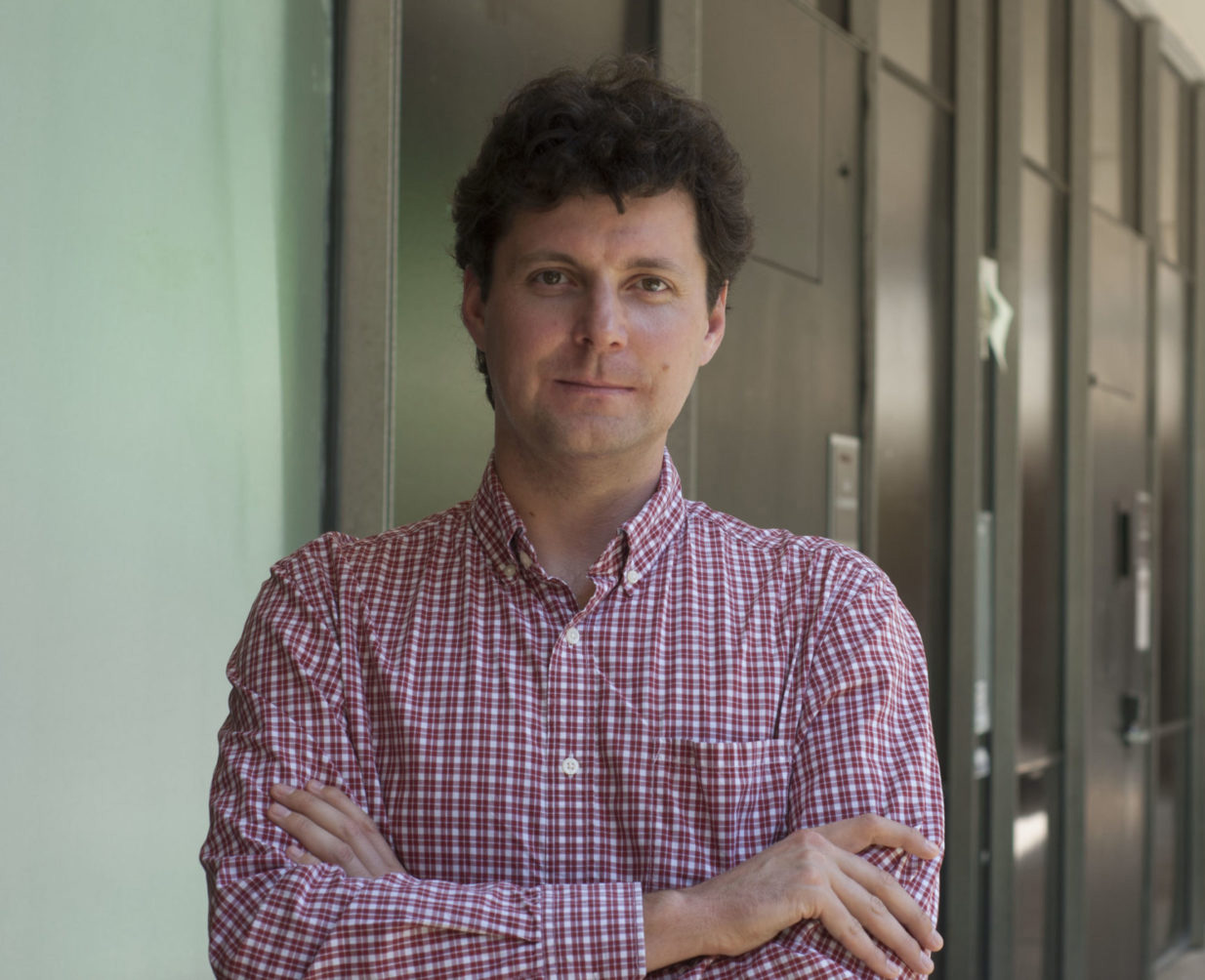Abstract
Human-in-the-loop control strategies in which the user performs a task better, and feels more confident to do so, is an important area of research for cyber-physical systems. Humans are very adept at learning to control complex systems, particularly those with non-intuitive kinematic constraints (e.g., cars, bicycles, wheelchairs, steerable needles). With the advent of cyber-physical systems, (physical systems integrated with cyber control layer), human control is no longer constrained to system inputs.
Performance Period: 05/15/2015 - 04/30/2018
Institution: University of Texas at Dallas
Sponsor: National Science Foundation
Award Number: 1464432
Abstract
It is now recognized that cloud data centers are a significant consumer of energy resources and a substantial source of greenhouse gas emission. On the other hand, the intermittency and uncertainty of renewable energy present a daunting operating challenge for the electricity grid. The key idea behind this CRII: Cyber-Physical Systems project is that these two challenges are in fact symbiotic: data centers can be virtual batteries for the electricity grid. Specifically, data centers are large loads, but are also flexible.
Performance Period: 05/01/2015 - 04/30/2018
Institution: SUNY at Stony Brook
Sponsor: National Science Foundation
Award Number: 1464388
Abstract
This Data-driven Decision-making in Cyber-physical systems (CPS) project focuses on bringing tools from data science and systems science together to develop new tools for analyzing and making accurate decisions in complex cyber-physical systems (e.g., power-grid, transportation network, power plants and smart buildings) to make them safer, more efficient and highly secure. This project develops algorithms, implements software and demonstrates proof-of-concept using large integrated building system as a challenge application area.
Performance Period: 05/15/2015 - 04/30/2018
Institution: Iowa State University
Sponsor: National Science Foundation
Award Number: 1464279
Abstract
This proposal will establish a framework for developing distributed Cyber-Physical Systems operating in a Networked Control Systems (NCS) environment. Specific attention is focused on an application where the computational, and communication challenges are unique due to the sheer size of the physical system, and communications between system elements include potential for significant losses and delays. An example of this is the power grid which includes large-scale deployment of distributed and networked Phasor Measurement Units (PMUs) and wind energy resources.
Performance Period: 09/01/2015 - 08/31/2017
Institution: North Dakota State University Fargo
Sponsor: National Science Foundation
Award Number: 1464208
Abstract
This CAREER project responds to an urgent need to develop mobile power distribution systems that lower deployment and operating costs while simultaneously increasing network efficiency and response in dynamic and often dangerous physical conditions. The significant need for an efficient and effective mobile power distribution system became evident during search and rescue/recovery missions following the Japan tsunami and the disappearance of the Malaysia MH370 airplane.
Performance Period: 05/15/2015 - 03/31/2019
Institution: Michigan Technological University
Sponsor: National Science Foundation
Award Number: 1453886
Abstract
This cross-disciplinary research proposes a patient-specific cost-saving approach to the design and optimization of healthcare cyber-physical systems (HCPS). The HCPS computes the patient's physiological state based on sensors, communicates this information via a network from home to hospital for quantifying risk indices, signals the need for critical medical intervention in real time, and controls vital health signals (e.g., cardiac rhythm, blood glucose). The research proposed under the HCPS paradigm will treat the human body as a complex system.
Performance Period: 05/15/2015 - 04/30/2020
Institution: University of Southern California
Sponsor: National Science Foundation
Award Number: 1453860
Abstract
Airborne networking, unlike the networking of fixed sensors, mobile devices, and slowly-moving vehicles, is very challenging because of the high mobility, stringent safety requirements, and uncertain airspace environment. Airborne networking is important because of the growing complexity of the National Airspace System with the integration of unmanned aerial vehicles (UAVs).
Performance Period: 06/01/2015 - 01/31/2017
Institution: University of North Texas
Sponsor: National Science Foundation
Award Number: 1453722
Abstract
This project provides travel support for the IEEE International Conference on Pervasive Computing and Communications to be held in March 2015 in St. Louis, MO. The conference spans many technologies that are fundamental to Cyber-Physical Systems specifically, including sensor systems, as well as the computer and information sciences more broadly.
Performance Period: 09/01/2014 - 08/31/2016
Institution: Missouri University of Science and Technology
Sponsor: National Science Foundation
Award Number: 1453497
Abstract
This project advances the scientific knowledge on design methods for improving the resilience of civil infrastructures to disruptions. To improve resilience, critical services in civil infrastructure sectors must utilize new diagnostic tools and control algorithms that ensure survivability in the presence of both security attacks and random faults, and also include the models of incentives of human decision makers in the design process.
Performance Period: 06/15/2015 - 05/31/2020
Institution: Massachusetts Institute of Technology
Sponsor: National Science Foundation
Award Number: 1453126
Abstract
Every year around 30,000 fatalities and 2.2 million injuries happen on US roads. The problem is compounded with huge economic losses due to traffic congestions. Advances in Cooperative Vehicle Efficiency and Safety (CVES) systems promise to significantly reduce the human and economic cost of transportation. However, large scale deployment of such systems is impeded by significant technical and scientific gaps, especially when it comes to achieving real-time and high accuracy situational awareness for cooperating vehicles.
Performance Period: 05/15/2015 - 11/30/2016
Institution: West Virginia University Research Corporation
Sponsor: National Science Foundation
Award Number: 1453125






